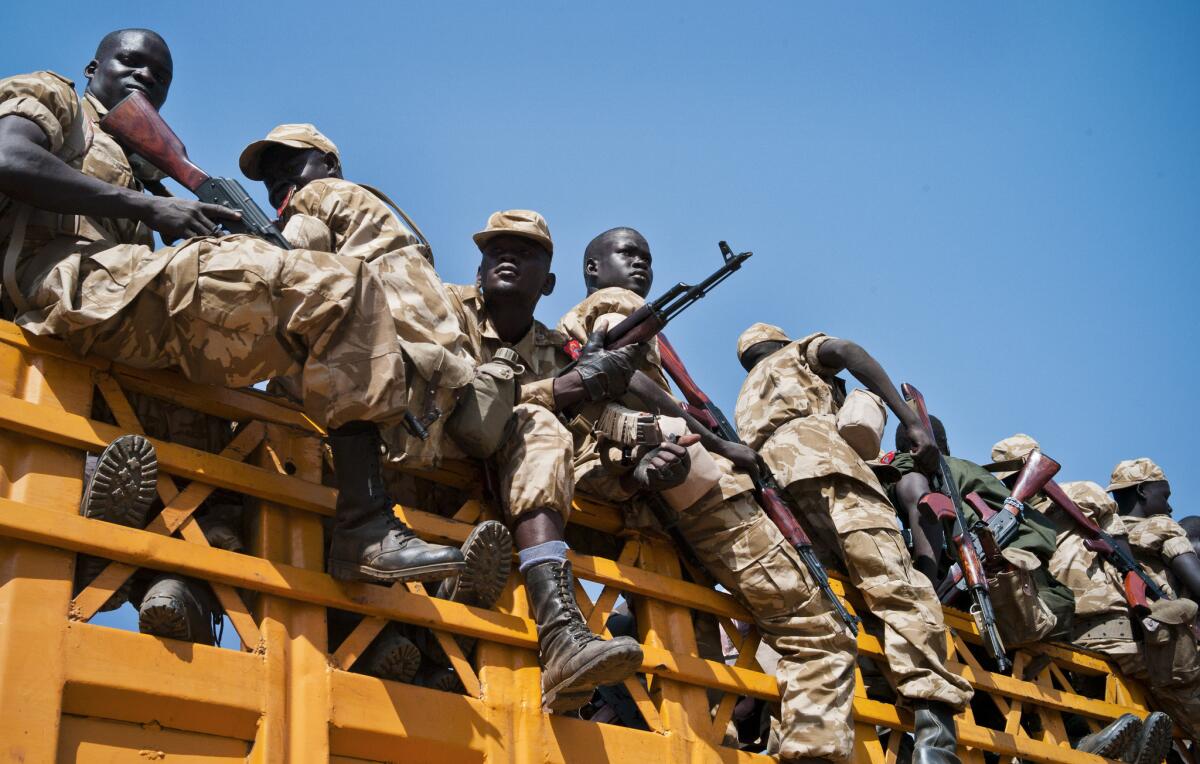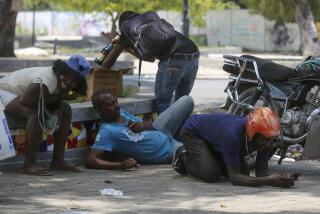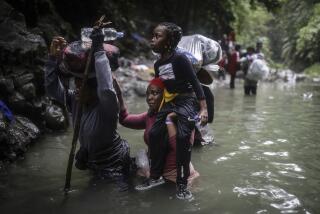Human Rights Watch: ‘Appalling crimes’ by both sides in South Sudan

JOHANNESBURG, South Africa -- Both sides in South Sudan’s new war have committed “appalling crimes,” according to a Human Rights Watch report Thursday, offering a grim picture of massacres, ethnic killings and looting of humanitarian aid.
The organization said a credible independent investigation was required, calling on the African Union to broaden its planned inquiry into atrocities to make it “truly independent and credible.” It also called for United Nations sanctions against individuals found to be responsible for crimes.
The current conflict began with a power struggle last year in the governing Sudan People’s Liberation Movement and the army, after President Salva Kiir sacked his entire cabinet, including vice president and rival Riek Machar. However, longstanding ethnic friction and distrust in the country, which gained independence from Sudan in 2011, played out in the killings that began in December last year.
“Appalling crimes have been committed against civilians for no other reason than their ethnicity,” said Daniel Bekele, Africa director at Human Rights Watch. “Both sides need to leave civilians out of their conflict, let aid groups reach people who need help and accept a credible, independent investigation into these crimes.”
Atrocities were committed by both government and rebel forces, according to Human Rights Watch. However, access to areas where rebels loyal to Machar are active was limited, the organization said, making it difficult to get information on the number of killings outside the capital and details on attacks.
For some, the facial scars that indicated they were of the Dinka or Nuer tribe became a death warrant. In one massacre in December, government forces shot randomly into a jailhouse room where 200 to 300 Nuer men had been detained, killing almost of them.
“It was very dark,” one survivor said. “The windows were opened and then they shot through them. It was just light from the guns and the sound of the shooting.
“They shot me in the inner thigh, I fell and then dead people fell on top of me,” he said, adding the only reason he survived was that he fell early on in the shooting.
In Juba, police and soldiers rounded up Nuer men and shot them in the street, according to witnesses interviewed by Human Rights Watch.
“They brought out five of my neighbors and shot them in the street,” a 42-year-old bricklayer told Human Rights Watch. “We ran, the soldiers said, ‘Stop.’ We refused and they shot at us. I stopped to pick my son but he was heavy and dead. When they reached him they shot him again.”
As fighting flared outside the capital, rebels loyal to Machar including a Nuer militia known as the “white army” attacked Bor and other cities, targeting Dinkas. Human Rights Watch reported indiscriminate killings in Bor and streets littered with bodies. Elderly or disabled people who could not run away were burned in their houses, according to a local chief interviewed by the organization.
“Men dressed in military uniform, carrying AK-47s stormed our village. It was evening that day when they came, ordering everybody out of their houses,” Martha Anger, 20, a refugee in Uganda, told the U.N. news agency Irin News. “They were about 10 or more, and without telling us what the problem was, they opened fire on us. People started running amid the shooting.”
“I saw men, children and women falling onto the ground, never to get up,” said Anger, from a village outside Bor, who was pregnant when the attack happened. “When I looked behind, I could see people lying down in pools of blood, some motionless, others groaning in pain.”
Nine of Anger’s relatives were killed and 11 seriously wounded, she said. She gave birth to a daughter Jan. 4 in a Uganda refugee camp.
Nearly 43,000 South Sudan refugees have fled into Uganda, according to the U.N. In all, more than 400,000 people have fled the fighting, the world body estimates, with more than 65,000 seeking shelter at U.N. compounds.
The U.N. has put the dead at about 1,000, but some estimates put the figure much higher.
Peace talks being brokered in Ethiopia by a regional body, the Intergovernmental Authority on Development, have not yet led to a cease-fire.
Eleven of Kiir’s opponents in the ruling party were arrested in December and accused of launching a coup. Kiir has failed to implement African Union’s call to release the politicians “in order to create a conducive environment for a successful dialogue.”
The African Union has threatened sanctions against individuals found responsible for inciting violence on ethnic lines, attacking civilians or blocking humanitarian aid.
Human Rights Watch called on the African Union to ask for U.N. help on the inquiry, including international investigators and experts to investigate serious crimes since fighting broke out Dec. 15.
Uganda has entered the war in support of Kiir, sending troops in December to battle rebel forces soon after the fighting erupted. Rebels claimed in December they had been attacked by Ugandan aircraft.
Ugandan President Yoweri Museveni confirmed his nation’s involvement Wednesday, claiming to have helped South Sudanese forces inflict a major defeat on rebels 55 miles from Juba and acknowledging that Ugandan soldiers were killed in battle.
He offered no details on the number of Ugandan dead.
Twitter: @latimesdixon
More to Read
Start your day right
Sign up for Essential California for news, features and recommendations from the L.A. Times and beyond in your inbox six days a week.
You may occasionally receive promotional content from the Los Angeles Times.






